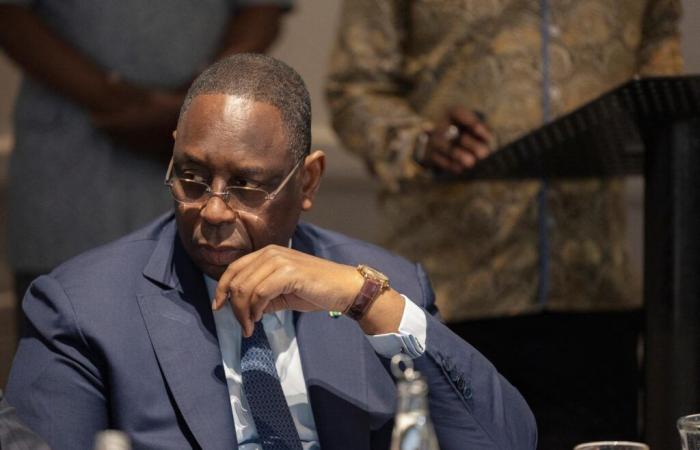In Senegal, the National Assembly adopted, Thursday, May 8, in the evening, resolutions returning five ministers from ex-President Macky Sall (2012-2024) before a special courtyard, especially for embezzlement of an anti-Cavid fund. The debates lasted more than nine hours on a question that arouses great interest in the country. The assembly is widely controlled by the party of President Bassirou Diomaye Faye, elected in March 2024 and who promised to fight against corruption in the country. Its regime launched various surveys against officials from the previous administration.
Read the decryption | Article reserved for our subscribers In Senegal, former President Macky Sall in the viewfinder of the authorities
Read later
The five ex-ministers concerned are Amadou Mansour Faye (community development), also brother-in-law of Macky Sall, Aïssatou Sophie Gladima (Mines), Moustapha Diop (Industrial Development), Salimata Diop (Women) and Ismaïla Madior Fall (Justice). After the vote on the accusation resolutions and their expected transmission to justice, these ex-ministers must be heard by the investigation committee of the High Court of Justice, which will decide their referral or not in trial before this jurisdiction, without appeal or appeal. The five resolution projects concerning them were adopted Thursday evening by the majority of voting deputies.
These are “People who used money intended to save human lives, to relieve suffering [des malades]. They took the opportunity to get rich ”castigated the deputy for power Babacar Ndiaye. Opposition MP Aïssata Tall Sall, for her part, denounced a procedure in which “The National Assembly is the prosecutor”, To reach “An exceptional jurisdiction”. She urged respect for the presumption of innocence to “Ministers who served the Republic and who were rigorous in their priesthood”.
The first file examined was that of Moustapha Diop, on whom weigh “Serious presumptions of embezzlement of public funds”according to a parliamentary report. He is accused of expenses of 2.5 billion CFA francs (3.8 million euros) in cash to produce masks, “A violation” Accounting rules according to the report. Amadou Mansour Faye is suspected of “Boundary of diversion of public funds” After spending on“A global surplus of 2.7 billion CFA francs” in rice purchases. Aïssatou Sophie Gladima must justify more than 193 million CFA francs spent for the construction of a “Gravimetric center for impacted gold areas” by the COVID-19.
-“Witch hunt”
Ismaïla Madior Fall is implicated for « corruption et concussion » After accusations of a property developer. The latter says he asked him 250 million CFA francs to award him a market. The promoter claims to have paid “A deposit of 50 million” On this sum, before the annulment of the market concluded, which Mr. Fall denied. For its part, Salimata Diop must justify expenses of more than 57 million CFA francs.
The High Court of Justice, chaired by the President of the Supreme Court, is empowered to judge the presidents and members of the government for crimes and crimes committed in the exercise of their functions. Prosecutions against former ministers in the exercise of their functions must be authorized by deputies, and their files had been sent to the Assembly by the Ministry of Justice. The High Court of Justice has only been active in the history of Senegal since its independence in 1963 and 2005.
Read also | Article reserved for our subscribers Senegal: the IMF confirms that Macky Sall has left $ 7 billion in hidden debts
Read later
Several personalities, including artists, animators, stylists or senior officials, have been interviewed in Senegal in recent days in the framework of the anti-Cavid funds. The opposition denounces a “Witch hunt” and a “Rooming” against the old power.
The Anti-Covid Fund, funded by the State of Senegal and donors, had been abunded up to 1,000 billion CFA francs to strengthen the health system, support households and the private sector and maintain jobs. In an audit report published in December 2022, the Court of Auditors noted irregularities in the management of this fund, linked to overcharges in the purchase of rice intended for disadvantaged households and for the acquisition of hydroalcoholic gel.









